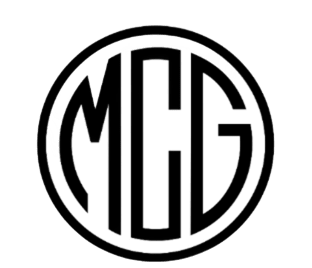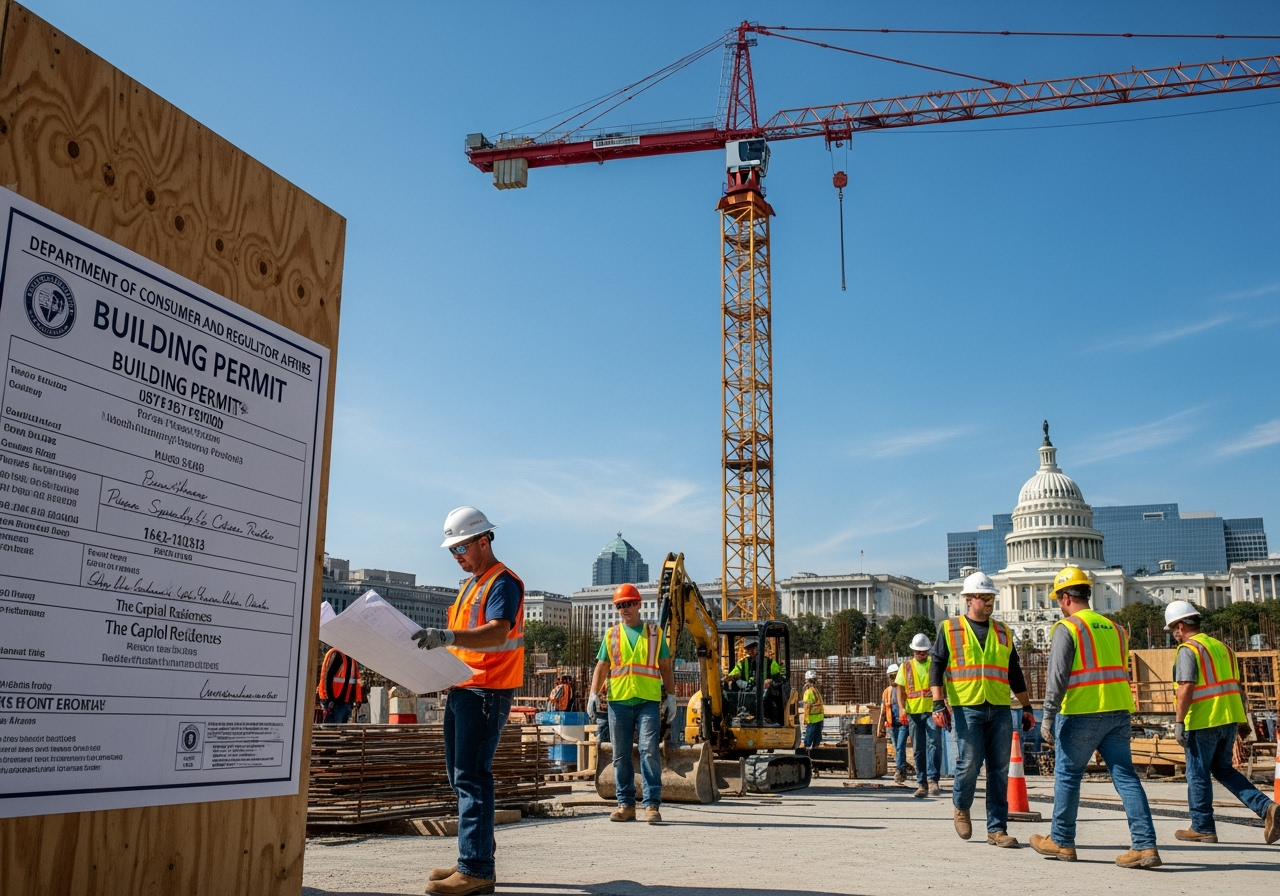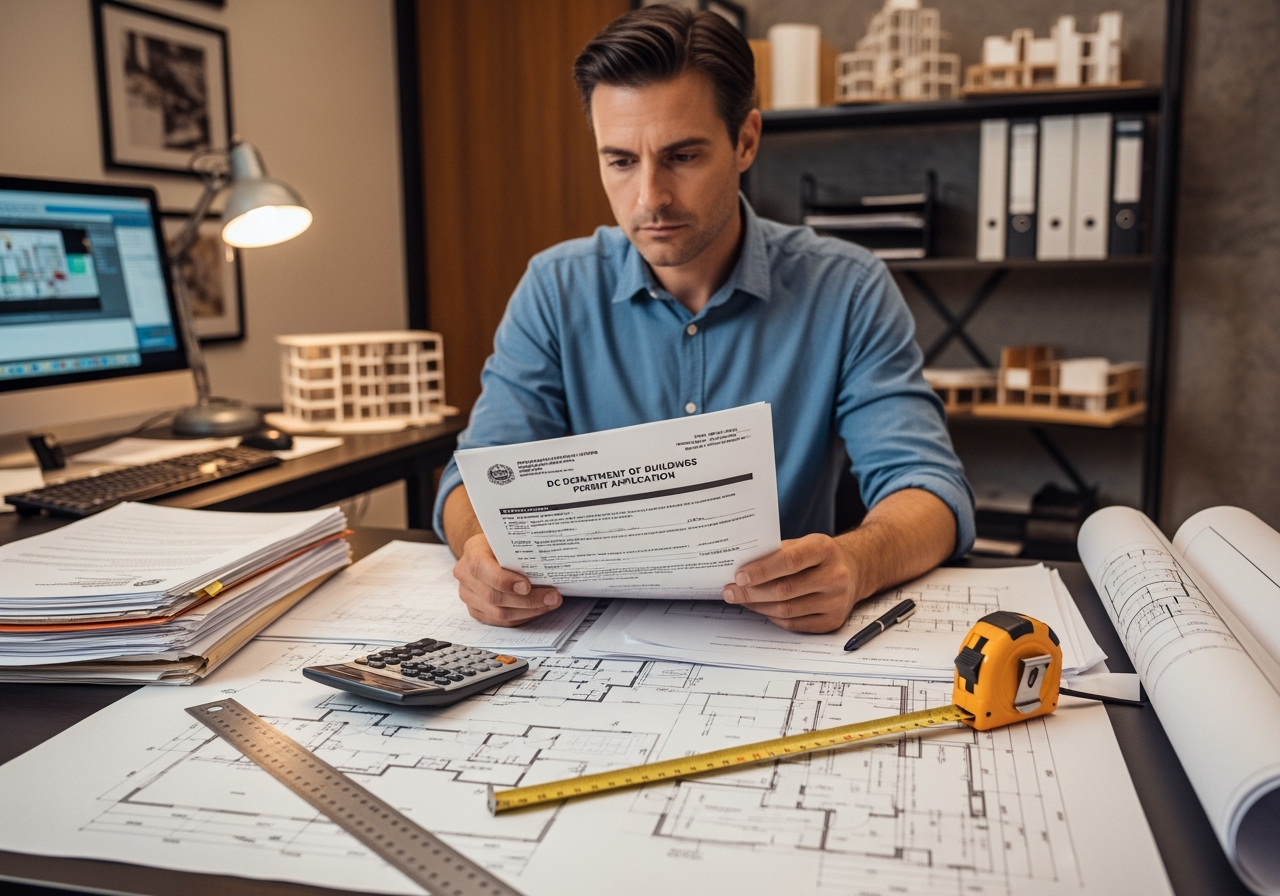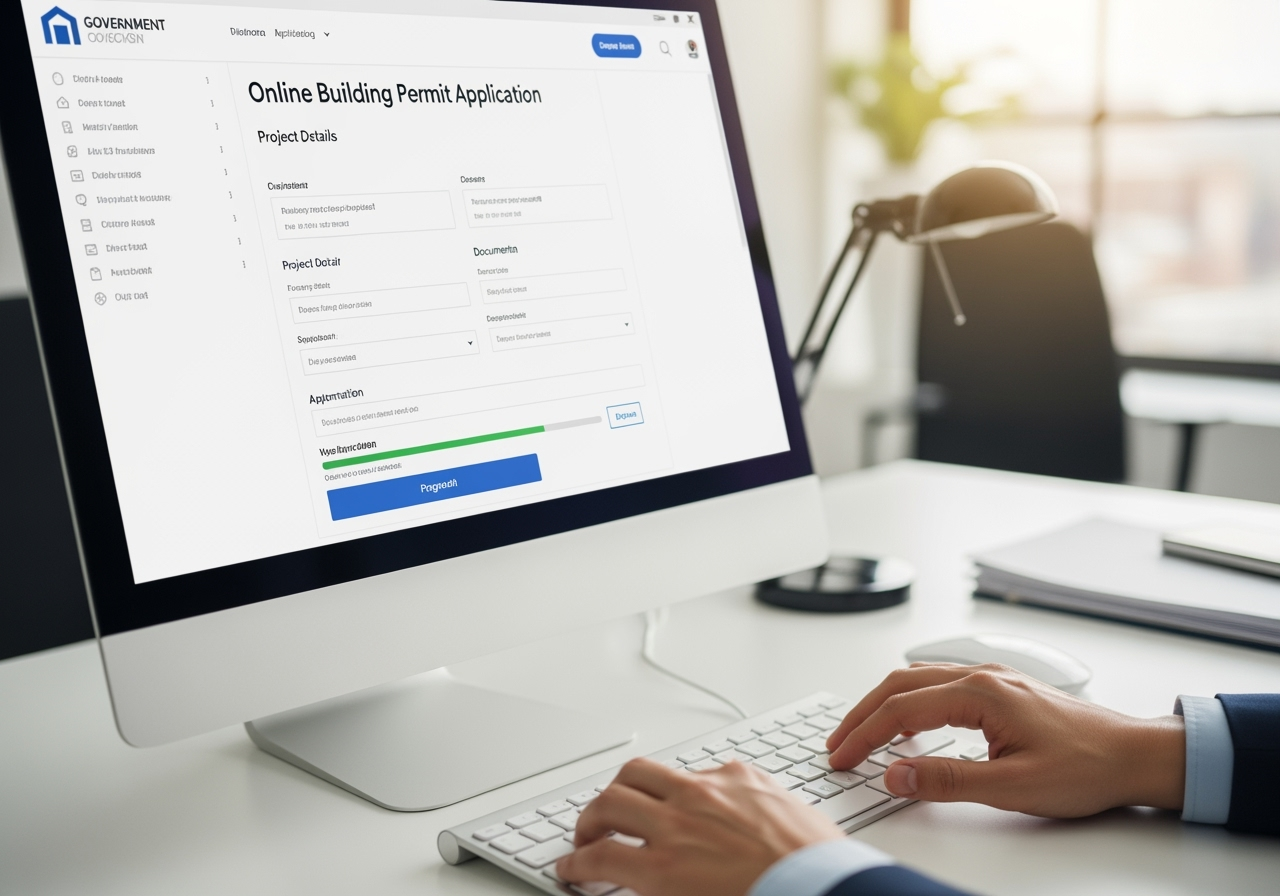DC Building Permit Guide for Builders, Developers, Contractors: Your Complete Roadmap to Success
Navigating the DC building permit process can make or break your construction project timeline and budget. Whether you're a seasoned developer or a contractor new to the District, understanding the intricacies of DC permit requirements is essential for project success. This comprehensive guide breaks down everything you need to know about securing DC building permits efficiently and avoiding costly delays.
Understanding the DC Building Permit Landscape
Washington D.C.'s building permit system is managed primarily by the Department of Buildings (DOB), but successful projects often require coordination with multiple agencies. The DC permit process has evolved significantly over the past decade, with digital submissions and streamlined workflows improving efficiency—when you know how to navigate them properly.
Types of DC Building Permits
New Construction Permits: Required for all new residential and commercial construction projects in D.C. These comprehensive DC building permits involve structural, electrical, plumbing, and mechanical reviews.
Renovation and Alteration Permits: Needed for significant modifications to existing structures. The scope of your DC permit depends on the project's complexity and whether it affects structural elements.
Change of Occupancy Permits: Essential when converting buildings from one use to another. These DC building permits require detailed code compliance reviews and often involve multiple agency approvals.
Demolition Permits: Required before any structure removal. DC permit requirements include environmental assessments and utility disconnection coordination.
Key Agencies in the DC Permit Process
Department of Buildings (DOB)
The primary agency for most DC building permits, DOB handles:
Plan review and approval
Building code compliance
Structural safety assessments
Construction inspections
DC Department of Transportation (DDOT)
Critical for projects affecting public space, DDOT oversees:
Public right-of-way permits
Traffic control plans
Sidewalk and street work approvals
Utility coordination
Other Essential Agencies
DCRA (Department of Consumer and Regulatory Affairs): Business licensing and some specialized permits
DDOE (Department of Energy and Environment): Environmental compliance and green building requirements
Historic Preservation Review Board: Required for projects in historic districts
Step-by-Step DC Building Permit Process
Phase 1: Pre-Application Planning (2-4 weeks)
Before submitting your DC permit application:
Conduct thorough site analysis
Verify zoning compliance
Engage licensed architects and engineers
Prepare preliminary drawings and specifications
Pro Tip: Early coordination with utility companies can prevent major delays later in your DC building permit process.
Phase 2: Application Preparation (1-3 weeks)
Your DC permit application must include:
Complete architectural drawings
Structural engineering plans
MEP (mechanical, electrical, plumbing) drawings
Site plans showing setbacks and parking
Environmental compliance documentation
Contractor licensing verification
Phase 3: Submission and Review (4-8 weeks)
The DC building permit review process involves:
Initial completeness check (3-5 business days)
Technical plan review by multiple departments
Potential revision requests and resubmissions
Final approval and permit issuance
Common Review Timeline:
Simple residential projects: 4-6 weeks
Complex commercial projects: 6-12 weeks
Historic district projects: 8-16 weeks
Phase 4: Construction and Inspections
Once your DC permit is issued:
Schedule required inspections at key milestones
Maintain compliance with approved plans
Coordinate with inspectors for timely approvals
Address any compliance issues promptly
DC Permit Requirements by Project Type
Residential Construction
Single-Family Homes: Standard DC building permits require complete architectural plans, structural drawings, and utility connections. Typical processing time is 6-8 weeks.
Multi-Family Developments: Complex DC permits involving affordable housing requirements, parking calculations, and enhanced fire safety measures. Timeline: 8-12 weeks.
Renovations: DC permit scope varies dramatically based on work extent. Kitchen/bathroom renovations may require only basic permits, while structural changes need comprehensive reviews.
Commercial Construction
Office Buildings: Comprehensive DC building permits requiring accessibility compliance, fire safety systems, and often LEED certification documentation.
Retail Spaces: DC permits must address customer capacity, egress requirements, and often specialized ventilation systems.
Mixed-Use Developments: The most complex DC building permits, requiring coordination between residential and commercial code requirements.
Common DC Building Permit Challenges and Solutions
Documentation Deficiencies
Challenge: Incomplete or inaccurate drawings leading to DC permit delays. Solution: Engage experienced local architects familiar with DC building permit requirements. Invest in thorough pre-submission reviews.
Zoning Complications
Challenge: Projects that don't clearly fit zoning parameters. Solution: Early consultation with zoning officials and potential Board of Zoning Adjustment applications before DC permit submission.
Historic District Requirements
Challenge: Additional review layers for properties in historic areas. Solution: Engage preservation specialists early and allow extra time for the DC building permit process.
Utility Coordination
Challenge: Delays in utility connections and approvals. Solution: Initiate utility coordination parallel to DC permit applications, not after approval.
Expediting Your DC Building Permit
Best Practices for Faster Processing
Complete Applications: Ensure all documentation is thorough and accurate before DC permit submission.
Pre-Submission Meetings: Schedule consultations with DOB reviewers to address potential issues early.
Experienced Team: Work with architects, engineers, and contractors familiar with DC building permit requirements.
Responsive Communication: Address reviewer comments quickly and thoroughly.
When to Consider Professional Permit Expediting
Complex projects benefit significantly from professional permit expediting services, especially:
Multi-million dollar developments
Projects with tight timelines
Historic district construction
Mixed-use developments
Projects requiring multiple agency coordination
Professional expediters bring established relationships with DC permit reviewers, deep knowledge of current requirements, and ability to navigate complex approval processes efficiently.
DC Building Permit Fees and Costs
Standard Fee Structure
DC building permit fees are calculated based on:
Construction value
Project type and complexity
Square footage
Number of units (for residential projects)
Typical Fee Ranges:
Residential renovation: $500-$3,000
Single-family new construction: $2,000-$8,000
Commercial projects: $5,000-$50,000+
Additional Costs to Consider
Plan review fees
Inspection fees
Third-party review costs (for complex projects)
Expedited processing fees
Professional services (architects, engineers, expediters)
Recent Changes in DC Building Permit Requirements
Digital Submission Process
D.C. has modernized its DC permit submission system with online portals and digital plan review capabilities. This has streamlined initial submissions but requires familiarity with new platforms.
Green Building Requirements
Enhanced environmental standards now affect many DC building permits, including:
Energy efficiency requirements
Stormwater management
Green roof mandates for larger projects
LEED certification pathways
Affordable Housing Integration
New requirements for affordable housing components in larger residential developments affect DC permit processing and approval criteria.
Tips for Contractors New to DC Building Permits
Licensing Requirements
Ensure your contractor's license is current and appropriate for your project scope. DC building permits require licensed contractor information at submission.
Local Code Familiarity
D.C. adopts modified versions of national building codes with local amendments. Understanding these nuances is crucial for successful DC permit applications.
Inspection Scheduling
Develop relationships with local inspectors and understand their scheduling preferences. Prompt inspection scheduling keeps projects moving efficiently.
Working with Permit Expediting Professionals
When Professional Help Makes Sense
Consider professional permit expediting for:
Projects over $500,000 in construction value
Tight timeline requirements
Complex multi-agency coordination needs
Historic district projects
First-time work in D.C.
What to Expect from Professional Services
Experienced permit expediters provide:
Complete application preparation and submission
Direct communication with agency reviewers
Proactive issue resolution
Real-time project tracking
Coordination with your design and construction teams
Conclusion: Mastering the DC Building Permit Process
Success with DC building permits requires thorough preparation, attention to detail, and often professional expertise. The investment in proper permit planning and execution pays dividends through faster approvals, fewer delays, and smoother construction processes.
Whether you're planning a simple residential renovation or a complex commercial development, understanding DC permit requirements and processes is essential. The key is starting early, preparing thoroughly, and leveraging experienced professionals when project complexity warrants it.
Ready to streamline your next DC building permit? M.C.G. Permit Consultants brings 25+ years of D.C. permitting expertise to your project. Contact us at (202) 729-8272 for a consultation on how we can accelerate your permit approval process and keep your project on track.
Remember: DC building permit requirements can change, and each project presents unique challenges. This guide provides general guidance, but always consult with qualified professionals for your specific project needs.




